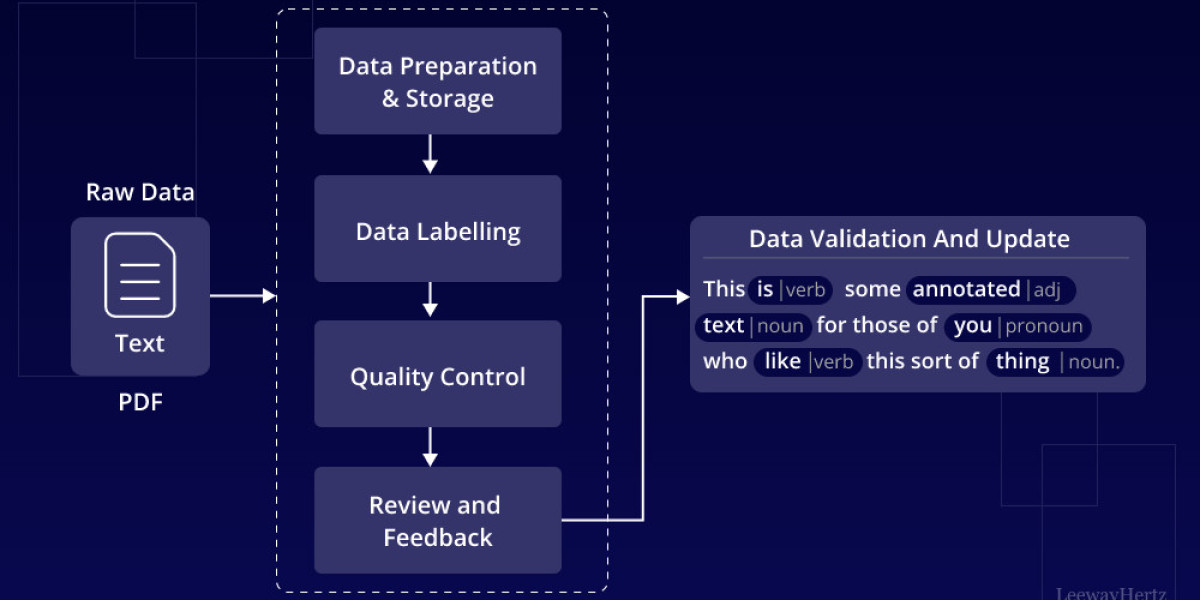The digital economy's reliance on artificial intelligence has established a robust and rapidly growing foundation for the ancillary technologies that power it. A comprehensive review of the Data Annotation Tools Market Valuation reveals a multi-billion-dollar industry whose financial worth is directly tethered to the explosive growth of machine learning and AI applications. This valuation is not just a measure of software licenses; it represents the critical value of creating high-quality, structured training data, which is the essential fuel for any supervised learning model. The market's worth is derived from its indispensable role in enabling groundbreaking advancements in sectors like autonomous vehicles, medical image analysis, natural language processing, and e-commerce personalization. As the volume of unstructured data generated globally continues to skyrocket, the demand for sophisticated tools to process, label, and manage this data for AI consumption becomes ever more critical. This fundamental need positions the data annotation tools market as a non-discretionary investment for any organization serious about building and deploying accurate, reliable, and effective AI systems, thereby cementing its high and continuously growing valuation.
The market’s substantial financial worth is further amplified by the increasing complexity of AI models and the corresponding need for more nuanced and precise annotations. Early annotation tasks may have been as simple as drawing bounding boxes around objects in an image. Today, however, the demand has shifted to far more intricate tasks like semantic segmentation for pixel-perfect object recognition, 3D point cloud annotation for LiDAR data in autonomous systems, and sentiment analysis with intent recognition in customer service transcripts. These advanced requirements necessitate more powerful and feature-rich tools that incorporate AI-assisted labeling, robust quality control workflows, and collaborative features for managing large, distributed annotation teams. The value of these tools lies in their ability to dramatically improve the efficiency and accuracy of the labeling process, which is notoriously time-consuming and labor-intensive. By reducing the time and cost associated with creating high-quality training data, these platforms provide a clear and quantifiable return on investment, which is a major contributor to the overall market valuation and a key justification for enterprise-level adoption and spending.
Furthermore, the valuation of the data annotation tools market is bolstered by its evolution from standalone software into integrated components of the broader MLOps (Machine Learning Operations) pipeline. Modern enterprises are moving towards a more holistic and automated approach to managing the entire machine learning lifecycle, from data ingestion to model deployment and monitoring. In this context, data annotation tools are no longer isolated products but are becoming tightly integrated platforms that connect seamlessly with data storage, model training frameworks, and validation systems. This integration creates a continuous feedback loop—often called "human-in-the-loop"—where the performance of a deployed model can automatically trigger the need for new or corrected annotations, which are then fed back into the training pipeline to improve the model. This shift towards an integrated, data-centric approach to AI development elevates the strategic importance of annotation tools, transforming them from a simple preparatory step into a dynamic, central component of continuous model improvement and a critical driver of the market’s robust financial valuation.
Top Trending Regional Reports -
Germany Online Classified Market
Brazil Transportation Management Systems Market



